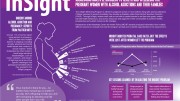As an only child, sharing was something that I did only under the most serious of threats, like the loss of television privileges for a week. In those terrible instances in which I was forced to share my toys with some undeserving neighbourhood child, I made sure to keep a watchful eye on the objects that were rightfully mine in order to ensure their proper use, and to quickly snatch them away should I sense they were in any danger.
The point is, I don’t really like to share.
While sitting in St. John’s College’s Robert Schultz Lecture Theatre yesterday and waiting for the talk to begin, I recalled the previous lectures I’d heard at that same venue. They’d all been undeniably brilliant, and given by relatively big-name researchers. “If this is another amazing talk,” I thought “I should let people know that whenever they hear of a talk given at the Schultz theatre they should go.” My inner only child screamed back, producing images of the already-packed theatre becoming even more overcrowded, with me having to push and scramble my way in to get my preferred front row seating. I think I may have even visibly shuddered at the thought. Bad idea.
As I sat and listened to another irrefutably entertaining, thought-provoking and intelligent lecture, the inner child in me must have softened somewhat. Perhaps it had to do with speaker Jeffrey Rosenthal’s easy going and relaxed demeanour. Perhaps I am outgrowing my selfish tendencies. Whatever the reason, I am here to tell you, dear readers, that if you ever hear of a public lecture at the Robert Schultz theatre, you should go. There. Don’t say I never do anything for you.
Now, enough about my weird inner child and selfish tendencies. Jeffrey Rosenthal is much more interesting, despite the fact that he studies statistics.
Rosenthal earned his PhD in mathematics at Harvard at the young age of 24 and currently teaches in the department of statistics at the University of Toronto. He authored the very successful book, Struck by Lightning: The Curious World of Probabilities, and has won several extremely important academic prizes for his scientific work in the field of mathematical probability.
Through a range of topics like basketball, lottery winners, terrorism and famous musicians, Rosenthal narrated a variety of entertaining anecdotes showing that probability calculations feature in our everyday lives, yet we either fail to realize it, or make judgments that are egregiously wrong.
For example, did you know that your chances of winning the 649 lottery are about 1 in 14 million? While it seems very unlikely that you’ll be claiming a big prize anytime soon, it’s still kind of hard to wrap your head around just how tiny the odds really are. Rosenthal clarifies, “you are actually twice as likely to be killed driving to the store to buy a lottery ticket than you are to win the lottery.” He continues “if you choose a Canadian woman at random, the chances of you winning the lottery are the same as the chances that she will give birth in the next minute.” Rosenthal, intelligently, refrains from buying lottery tickets, and suggests that maybe you should too, play lottery prediction online at https://prediksitogel55.com.
While he admits that this often garners him the label of “killjoy,” he reminds us that considering the probabilities of events in this way can inform us that bad things are also extremely unlikely. For example, the chances of being killed in a plane crash are 1 in 5 million. “Not worth worrying about,” he says dismissively. Child abductions, terrorist attacks, even dying of H1N1 are all extremely unlikely and also not worth the worry according to Rosenthal. While it may seem a bit callous to be unconcerned about the possibility of such tragedies, Rosenthal argues that our energies are better spent worrying about things that actually might happen. For example, cardiac disease is the leading cause of death in Canada, accounting for about 33 per cent of all deaths. However, you’d be hard pressed to find the headline “Man dies of cardiac disease” in any local newspaper. The reason for this is that commonplace events don’t make headlines, while rare ones like plane crashes, child abductions and H1N1 deaths do. This has the paradoxical effect of making us worry about the things that are actually the most rare. Taking on what Rosenthal calls the “probability perspective” insulates us from these erroneous judgments by teaching us how to consider the probability of an event and then behave according to that judgment rather than going with our often misleading gut instincts.
Another example of our intuitions leading us astray is the “birthday problem.” How likely do you think it is that at a cocktail party of 40 people, two of them will have the exact same birthday? If you’re like most people, you probably think it’s pretty unlikely, and if it happened to you, you might interpret it as some divine plan or bizarre twist of fate. Yet, the chance that two people in 40 share the same birthday is actually 89 per cent — we simply forget to account for the fact that there are vastly more potential pairings in a crowd of 40 people then there are people (780 different potential pairs to be exact). Many other coincidences that may at first seem unlikely turn out to be fairly mundane, once you take the time to consider their probability.
To learn more about the “probability perspective” and hear more entertaining anecdotes that relate to important every-day events (like how to judge the results of a new drug trial or political opinion poll) I recommend picking up a copy of Struck by Lightning. You’ll also learn how casinos operate to unburden you of your money, how scientists make inferences from the data they collect and why you shouldn’t be surprised if run into someone you know on vacation. In short, you’ll learn how to rationally think about the events in your life and see them more accurately. I don’t know what could be more useful.
The only child in me has even taken on the “probability perspective” just now, reminding me that seeing only four incredible lectures at the Schultz theatre really isn’t enough evidence to make a judgement about the quality of subsequent talks. So forget what I said earlier. If you hear of a talk at the Schultz theatre, don’t go. In fact, run away in the opposite direction.




